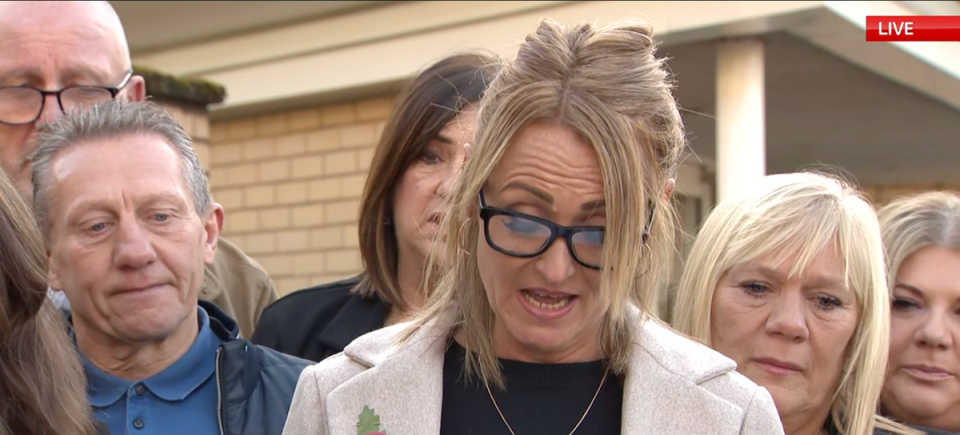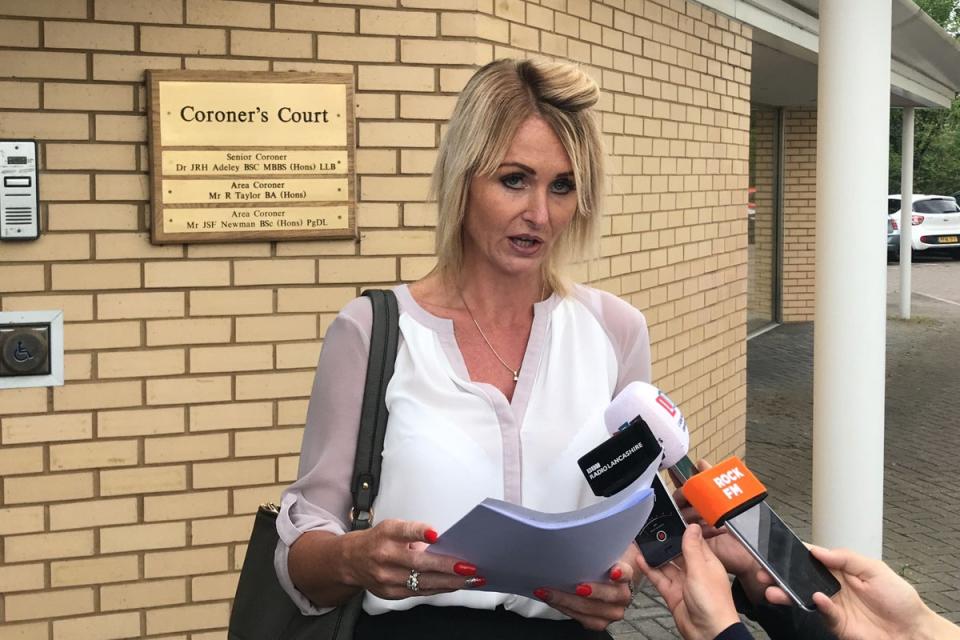British couple in Egypt died from poisoning after room next door sprayed to kill bedbugs, coroner rules
British holidaymakers who fell suddenly ill in their hotel room at a resort in Egypt, died from carbon monoxide poisoning after the room next door was sprayed with pesticide to kill bed bugs, a coroner has ruled.
John Cooper, 69, and his wife, Susan, 63, from Burnley, Lancashire, had been enjoying a “brilliant” holiday while staying at the Steigenberger Aqua Magic Hotel in the Red Sea resort of Hurghada in August 2018, Preston Coroner’s Court heard.
Kelly Ormerod, the Coopers’ daughter, who described her parents as fit and healthy for their age, had been on holiday with them, their three grandchildren and family friends.
But around lunchtime on the eighth day into their holiday the room next to theirs, which had an adjoining locked door between them, was fumigated with pesticide, known as Lambda, for a bed bug infestation. The room was then sealed with masking tape around the door.
Hours later the couple returned to their room for the night but found seriously ill the next day by their daughter. Mr Cooper was declared dead in the room and her mother hours later in hospital.

Speaking outside of court Kelly Ormerod, the Coopers’ daughter, said their family “has been broken” since her parents’ death.
“To go on a family holiday, full of the joys and excitement of spending quality time together, to then be faced with the heartrending events that happened will never be forgotten,” she said.
“To this day our family struggles to comprehend what happened. It should never have been allowed to happen”
She said time had stood still for the family because of the unanswered questions they have had, adding that they will “never fully come to terms with losing them the way we did”.
The inquest heard in some countries the pesticide Lambda is sometimes diluted with another substance, dichloromethane, which causes the body to metabolise or ingest carbon monoxide.
Following a three-day inquest hearing, Dr James Adeley, senior coroner for Lancashire, ruled the deaths, on 21 August 2018, were caused by carbon monoxide poisoning as a result of inhaling the vapour from spraying the pesticide which contained dichloromethane.

Mr Cooper, a builder, and his wife, Susan, a cashier at a bureau de change in a Thomas Cook travel agent, enjoyed several holidays a year, according to Ms Ormerod, a civil servant with HMRC.
Her mother had been to the same hotel in April that year and described it as “fabulous”, and decided to go back with the whole family.
On the evening of 20 August, they all went to the hotel restaurant and a bar before retiring for the evening.
Ms Ormerod’s daughter, Molly, then aged 12, was staying on a single bed in her grandparents’ room, which she said had a “yeasty smell”. But at 1am Mr Cooper rang to say she was feeling a little unwell and he escorted his granddaughter to her mother’s room on the upper floor.
The next morning, Mr and Mrs Cooper failed to emerge for breakfast, so Ms Ormerod went to their ground floor room, 5107, to discover the pair were seriously ill.

Ms Ormerod said her father came to the door saying: “I really don’t feel very well,” with him retching and screwing his face up.
“He just literally slumped and sat on the corner of the bed and said: ‘I’m really not well,” Ms Ormerod told an inquest hearing.
She said her mother was in bed, “groaning”, with vomit in her hair and around the room, where she noticed a strange “heavy” smell.
Two doctors were summoned but they were in “panic mode”, Ms Ormerod, as her parents further deteriorated and her father struggled to breathe.
Tearfully, Ms Ormerod added: “His eyes kind of ... a glazed, staring look.”
CPR was attempted but Mr Cooper was declared dead on the hotel room floor and his wife was taken to a clinic at the hotel where she became “super agitated” and delirious, the inquest heard. Mrs Cooper was taken to hospital by ambulance but declared dead at 4.12pm.
The inquest, five years after the deaths, also heard of multiple, repeated attempts to obtain more documents and information from the authorities in Egypt despite numerous requests from the Foreign Office.
Coroner Dr Adeley said Mr Cooper’s illness and death were rapid, but described the medical treatment provided for Mrs Cooper as “utterly insufficient” after she was taken to a clinic in the hotel before an ambulance was called, creating a delay of four hours before she got to hospital.


